After having flourished in the Middle East, jihadism imposes its law in the Sahel, where the French presence will not have succeeded in protecting the populations from security and humanitarian risks.
Like other regions in the world, Africa is confronted with the violent spread of Salafi-jihadism and the political project of establishing Islamic emirates on the setbacks of postcolonial nation-states.
For the authorities of the Sahel countries as for France, the motivations of the jihadist insurgency have been difficult to understand. Many believed that the violence in Mali would not spill over to its neighbours. The attacks against the security forces, the massacres of civilians and the testimonies of residents in the areas controlled by the jihadists initially caused a wave of panic and a feeling of bewilderment at the speed of their expansion and the ease of their consolidation.
Populations left to their own devices
In the Liptako Gourma region, for example, the state is absent and there is little humanitarian aid because of threats against NGOs. The region is characterized by a very high demography, young people aged 15 representing approximately 50% of the population. Many no longer have access to school because of threats to teachers. The Islamic State therefore finds there a pool of young fighters confronted with endemic poverty.
In 2018, nearly 900 people, almost 000% of the population of these regions, were considered “severely food insecure”. The effects of climate change, drought and floods are destructive and affect the economic activities of these territories, mainly agriculture and livestock. With more than 9 million cattle and 25 million sheep and goats, there are many conflicts between herders and farmers due to the expansion of agricultural land to the detriment of the former. In addition to these land disputes, there are conflicts between community groups fighting for control of local power and illicit activities.
In return for their allegiance, the jihadist groups authorize the local populations to disobey the prohibitions enacted by the authorities concerning hunting in protected areas, fishing, transhumance and gold panning. They perceive a zakat, or tax, on livestock. These recipes attract all kinds of people willing to join jihadist groups if the latter generate lucrative activities: former highway robbers and bandits find in these jihad "managers" a salutary outlet by giving a religious meaning to criminal practices.
Cattle rustling and kidnapping of people, for example, are becoming integrated activities in the jihad economy to the delight of criminals, finding advantages in the territories managed by jihadists that they did not have before. Considered bandits or criminals by the authorities, they become entrepreneurs who contribute to the economy of the “liberated territories”.
Agriculture and livestock employ 70% of the population in the Sahel and the effects of climate change are fueling conflicts and tensions in regions where land issues are recurrent. IPCC projections suggest a 20% reduction in harvests over each decade between now and 2100, even as the population reaches 500 million.
In Niger, for example, with the lowest urban population in the region (18%), but with the most dynamic demographic growth (61 million inhabitants in 2050 according to estimates), the question of food security arises acutely. The violence has driven millions of people to flee their villages and join makeshift camps for internally displaced people. Hundreds of thousands of children are deprived of school and become future recruits. In some countries, such as in the Lake Chad region, stronghold of Boko Haram, the school enrollment rate for children does not exceed 7%. For civilian populations, the jihadist insurrection has aggravated already numerous evils.
The flight of millions of civilians
In July 2022, the High Commissioner for Refugees (UNHCR), a United Nations agency, issued a warning cry: the Sahel is going through one of its worst crises with millions of displaced people, but it is nevertheless the one of the most overlooked.
About three million people have fled the region due to clashes between jihadist insurgencies and armed forces. In less than ten years, the number of uprooted people has gone from 217 in 000 to 2013 million in 2,1. In Burkina Faso, the North and North-West regions are the most affected and the internally displaced persons are estimated at 1,5 million. In 2021 alone, 500 people have fled the region due to random attacks by armed groups against civilians, rapes, executions and the destruction of civilian infrastructure.
Filippo Grandi, the High Commissioner for Refugees, underlines, after a visit to the region, the deterioration of the situation and estimates at 29 million the number of people, half of whom are children, in need of assistance and vital protection. “The emergency, he says, is here in the Sahel, where people are suffering, are massacred, where women are raped and where children cannot go to school. We need to intervene in the Sahel before this crisis becomes unmanageable. »
The violence in this region has only accentuated and aggravated the suffering of the most vulnerable populations. In 2020, Unicef pointed out that five million people were in a situation of food insecurity in the region (Mali, Niger and Burkina Faso) and that 700 children under 000 could suffer from severe acute malnutrition. In the Lake Chad basin, the insecurity inherent in the jihadist insurgency led by Boko Haram has caused the flight of 2,8 million people, mainly Nigerians, and exposed the most vulnerable to threats of food insecurity. In northeastern Nigeria, more than eight million people need humanitarian aid. In his work, Christian Seignobos points out that Boko Haram's control over "a large part of the lake's resources" has led the states of the region to prohibit the exploitation and marketing of products from the latter in order to prevent the jihadist insurgency in generate income.
The United Nations Office for the Coordination of Humanitarian Affairs (OCHA) estimates that 5,5 million the number of people at risk in the Lake Chad Basin (Cameroon, Chad, Niger and Nigeria). In Chad, the IOM (International Organization for Migration) estimates that half of the population (360 inhabitants) of this administrative province has left this region: "This is a worrying trend because displacements have become not only recurrent, but numerous and prolonged due to the deterioration of the security and environmental situation. Indeed, over the last forty years, the surface area of Lake Chad has been reduced from 35 square kilometers to 000 square kilometers, causing a scarcity of resources for the populations who live on the islets and live from fishing.
Education at the center of concerns
Like Algeria in the 1990s, the education sector is a prime target for jihadist groups, as it is very easy to reach and with minimal risk of resistance. The assassinations of school principals or teachers in front of their students are at work.
Accused of studying colonialism or the "white", of collaborating with the security forces, teachers are chronic targets of jihadists. Many observers point out that education is the main issue in the war of ideological competition: for the jihadists, the teaching of French must be replaced by that of Arabic and the Koran. Girls and boys must be separated and female teachers veiled: "They say that the school for whites is haram. They prefer the Koranic school", testifies a resident in the newspaper The Sahelian.
In Burkina Faso, a UNICEF report estimates that 5, in 700, the number of establishments closed due to jihadist violence and 350 the number of students deprived of schooling, mainly in the provinces of Soum, Oudalan and Loroum: "Not only do the Islamist armed groups that target teachers, students and schools in Burkina Faso commit war crimes, but they sweep away years of progress that have facilitated children's access to education,” said Lauren Seibert, researcher and author of a Human Rights Watch report.
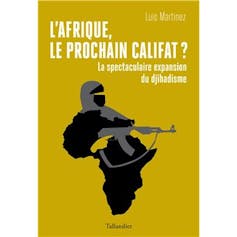

Unicef recalls that in 2020, in the Sahel region, " more than eight million children aged 6 to 14 are out of school, or almost 55% of this age group" and that the destruction of schools only accentuates a basic structural problem. In Mali, the UN agency estimates that 1 schools have been closed, depriving 664 students of class, and more than 500 in Niger. In this country, most of the closed schools are in the Tillabéri region, in Liptako-Gourma, between Niger, Mali and Burkina Faso, where the presence of the EIGS is very strong.
An OCHA report points out that: "Killings of civilians, targeted assassinations against customary and religious leaders, kidnappings, extortion of goods and livestock are frequent in this region", forcing more than 100 people to flee . The Liptako-Gourma or “three borders” region is characterized by extreme poverty and by the youth of its population, half of whom are under 000 years old. A report resulting from joint work between UNICEF, the OECD and OCHA is full of data on this Triangle of Liptako-Gourma, cross-border epicenter of the jihadist coalition led by EIGS.![]()
![]()
Luis Martinez, Director of Research, CERI, Sciences Po
This article is republished from The Conversation under Creative Commons license. Read theoriginal article.















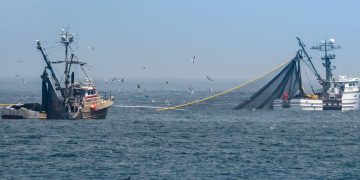

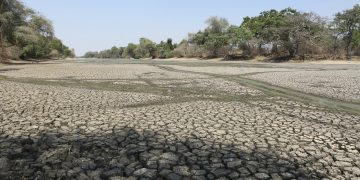

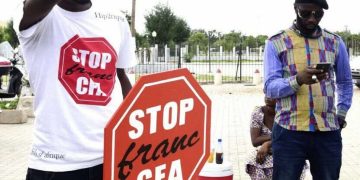

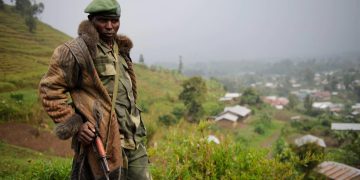






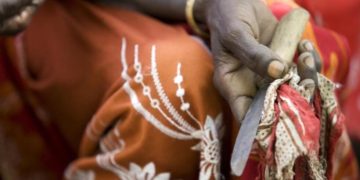

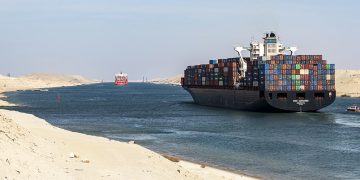
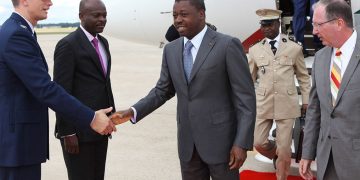



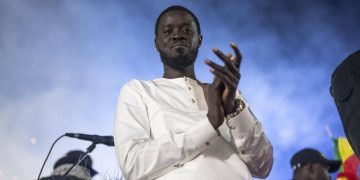
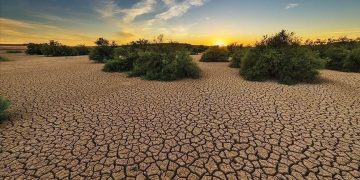


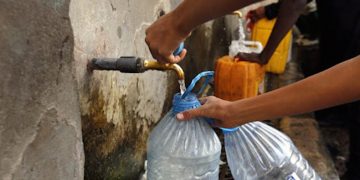
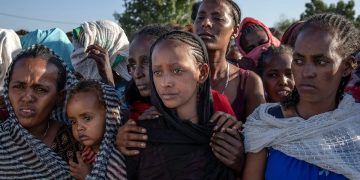

![[Editorial] 30 years later, is apartheid really over?](https://lejournaldelafrique.com/wp-content/uploads/2021/06/caricature-jda-apartheid-360x180.jpg)
![[Edito] Gabon and Commonwealth: the whims of Prince Ali](https://lejournaldelafrique.com/wp-content/uploads/2021/06/caricature-JDA-Bongo-360x180.jpg)
![[Editorial] Facebook and Twitter, more dictators than dictators?](https://lejournaldelafrique.com/wp-content/uploads/2021/06/Caricature-JDA-FB-TW-360x180.jpg)
![[Edito] Rwanda: for the French apologies, we will have to go back](https://lejournaldelafrique.com/wp-content/uploads/2021/05/Caricature-rwanda-JDA-360x180.jpg)
![[Edito] Guinea: Alpha Condé, the oppressed turned oppressor](https://lejournaldelafrique.com/wp-content/uploads/2021/05/Caricature-Alpha-Conde-360x180.jpg)
![[Edito] CFA Franc: a facelift cut to measure for France](https://lejournaldelafrique.com/wp-content/uploads/2021/05/Caricature-JDA-CFA-360x180.jpg)
![[Edito] Riyad Mahrez: One, two, three, viva l'Algérie!](https://lejournaldelafrique.com/wp-content/uploads/2021/05/caricature-Mahrez-360x180.jpg)
![[Edito] Niger: Mohamed Bazoum begins a delicate balancing act](https://lejournaldelafrique.com/wp-content/uploads/2021/04/image_6483441-1-360x180.jpg)
